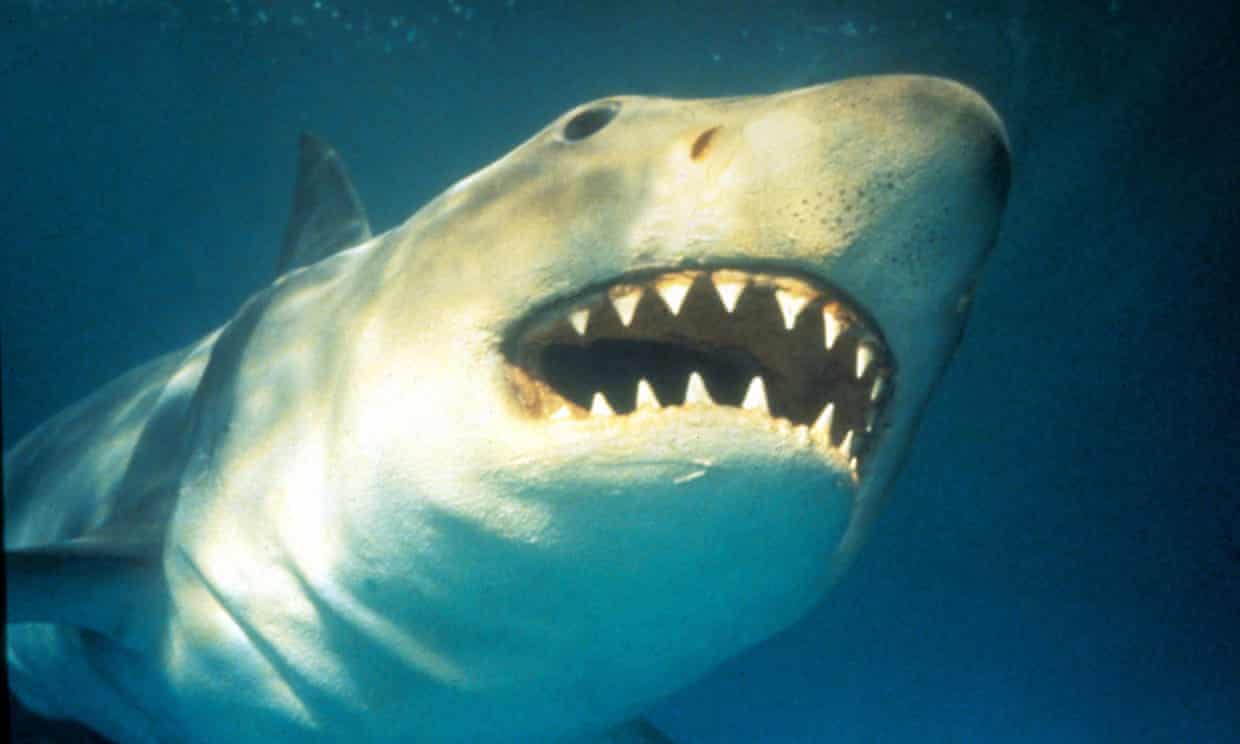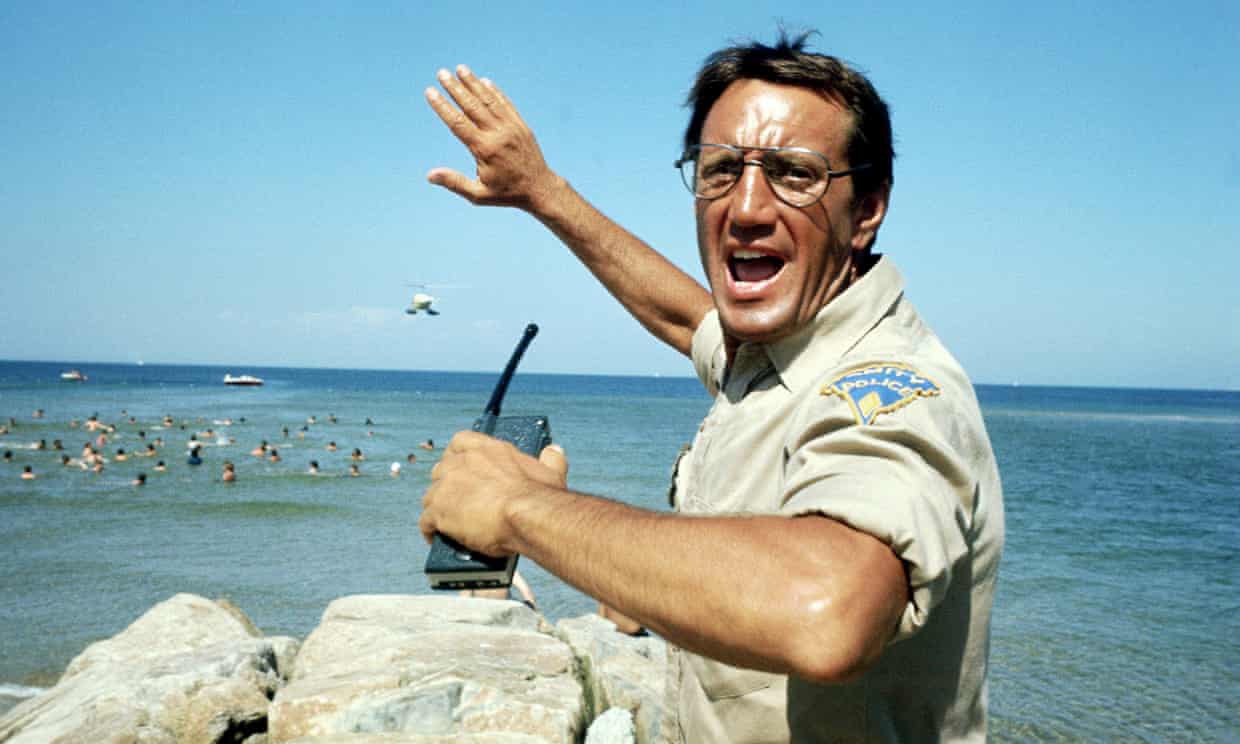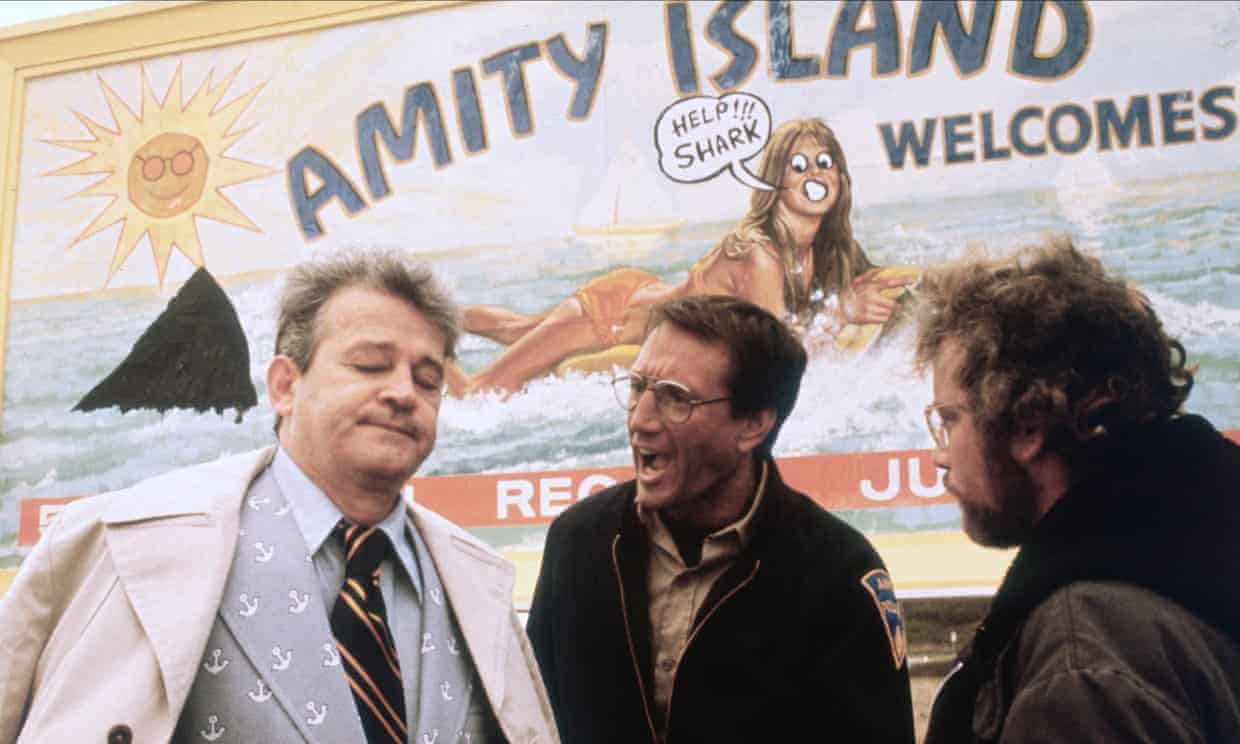
The classic film I've never seen
I've never seen … Jaws
The dunes are alive with the sound of screaming as a monstrous, ravenous fish terrorises a seaside community – but this is not a film about a shark
by Daniel Harris- See the other classic missed films in this series
- The best arts and entertainment during self-isolation
Jaws is not a film about a shark. I knew this before I watched it because, every few months for the best part of two decades, Mark Kermode has reminded me on his Wittertainment radio show. But not until I watched it did I understand the extent to which Jaws is not a film about a shark, and it would still elude me now had I not watched it when I watched it.
You can’t come cold to Jaws, but everything you think know is irrelevant once the opening sequence is under way. Set in the ocean around Amity Island to John Williams’ brilliant, horrendous score, it submerges the viewer with an oppressive helplessness that is intensely familiar. Death is imminent, and all we can do is wait.
Tone established, we cut to people on the beach, enjoying joy. They remind us that life is both precious and fragile, because we know one of them will soon lose theirs in the course of simply going about their business.
The stress is profound, and all we can do is hope for the impossible – that the threat either fades away or swerves off course – until it doesn’t. We see an end that is lonely, protracted and savage, but then see neither body nor grieving relatives, so do not really feel loss, the victim a statistic whose death does not speak to us. We feel relieved that we had no relationship with her and guilt at that relief, before life swiftly resumes.

But Martin Brody, the police chief, sees the corpse and, fearing further tragedy, shares his fears with the mayor – a try-hard blow-hard who oozes smarm, privilege and phoney eccentricity. In the way of a man who has never had to take responsibility for his actions, he responds with crass condescension, prioritising profits over people – Independence Day is imminent – and glibness over substance. Jaws is not a film about a shark.
So we return to the beach for our next horrendous death, before which a woman wonders when she’ll become “an islander”. “Never!” her councilwoman friend tells her. “You’re not born here.” The cost of this smug, insular exceptionalism – this islander mentality – will soon be measured in blood.
The vulnerability of the second victim, a young boy, is even more disquieting than the first, and this time we see the mother who loves him. When she returns shortly afterwards, utterly bereft, we can no longer ignore the reality that death is irreversible and everyone is someone’s something. In desperation, she slaps Brody.
Naturally, people are concerned, so a town meeting is called. Brody is asked if he is going to close the beaches. He says he is, only to be overruled by the mayor, whose power and privilege mean he still feels safe. Thus danger you can’t see is abetted by leadership you can see through. Jaws is not a film about a shark.
The mayor’s problem is that ingrained within him is a disgust for detail and decency, which is why he was surprised by an attack that was both predicted and planned for. Because he does not care for people not of his type, he refuses to shock people who must be shocked by something shocking, for fear of them being shocked, while those whose job it is to understand the specifics – we might call them experts – become ever angrier.

Quickly, those fearing something terrible happening are painted as unpatriotic stiffs, bringing science to a pride fight. As such, though there’s a clear way to avoid aggravation – staying away from the water – people choose not to, unwilling to compromise the freedom that helps them make sense of things. Believing itself to have conquered the world, humanity is used to doing as it pleases, so when that turns out not to be the case it responds with confused belligerence, determined to show an oblivious opponent precisely who is boss. Jaws is not a film about a shark.
The mayor’s desire to solve the problem lasts only until the cost becomes apparent. He can’t bring himself to sensibly pay a professional putting himself in harm’s way for the cause, so various chancers seize the chance to make a wedge, killing any old shark and proclaiming an easy victory.
Those who know better insist to the contrary but, his already unstoppable arrogance fortified, the mayor encourages islanders to visit the beaches on the Fourth of July, even allowing his own kids to partake, and then, when people stay on the shore, pressurises someone to lead them into the water. A modern-day comparison might be to imagine a disease that can be spread by shaking hands and an exhibitionist prime minister then shaking hands with those suffering from it, at the same time as allowing huge sporting events to proceed and evoking war as an everlasting deposit into a national wank-bank able to cure every ill.
Meanwhile, sensible people grow increasingly despondent at the preventable horror soon to be visited on unsuspecting patsies. The constant dread is of who will be next – when will someone we know die? – until finally we see the hideous threat with our own eyes. The reality, though, is that its effect – a severed limb – is far more traumatic, likewise the suffering visited on the children proximate to it. Jaws is not a film about a shark.
Now, the mayor has no choice but to act, his realisation fired by his personal proximity to disaster. Consequently, the experience does not change him. He stumps up money for the hunt, but his performance reveals the incompetent invertebrate we already knew him to be.
So three men set off to kill the shark – the bounty hunter, the scientist and Brody – and before they do, we see how worried Brody’s wife is. Previously, she had assuaged her feelings with sex and drink, but now the peril is directly upon her, she cannot, which is to say that everyone thinks they understand it until they understand it.
Out at sea, booze, singing and camaraderie soon give way to squalor, rancour and claustrophobia, people trapped against their will with death marauding somewhere outside. Eventually, though, they neutralise the killer in a scene of ecstatic, triumphant relief and, victims forgotten, we assume that Amity immediately reverts to the vacuity that underpinned its catastrophe to begin with. Yeah, Jaws really is not a film about a shark.